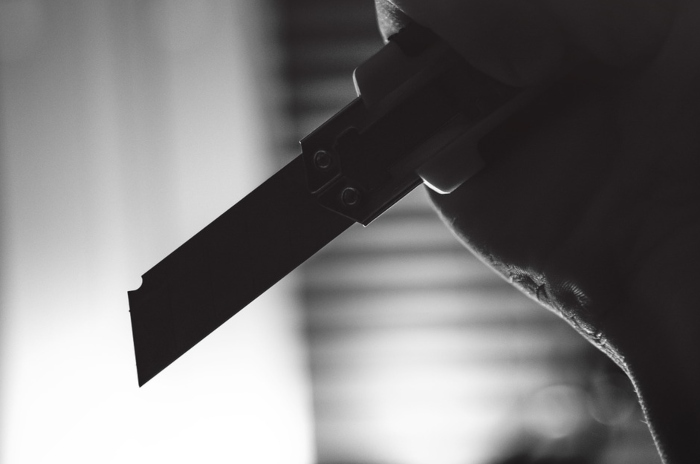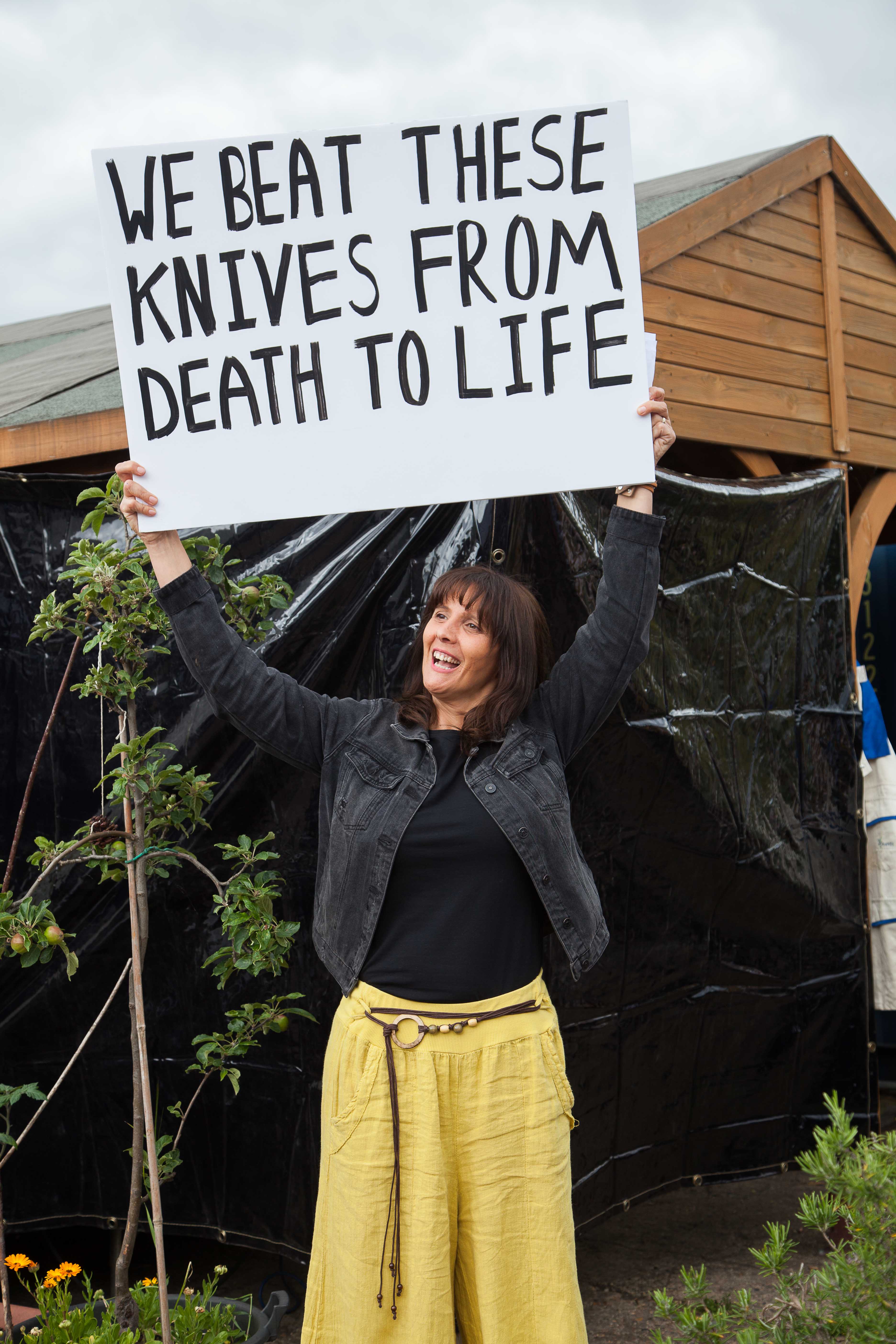What can Christians do about knife crime?
The view from a local church, by Dr Sally Mann, minister of Bonny Downs Baptist Church in East London

Last year, knife offences reached a record 40,000 in England and Wales, a third of them in London.[1]
Sadly, these aren’t statistics I could distance myself from even if I wanted to. Every week, I talk to people affected by violence – people such as the young leader at our Sunday School who lost a 17-year-old best friend to a knife attack four months ago, a few streets from his family home.
Jesus’s call to action
The reasons behind our growing culture of violence are many and complex. However, it’s become impossible for me to separate this problem from the wider issue of growing inequality. Recently, there has been a flurry of reports from experts, ranging from the UN to the All-Party Parliamentary Group on Knife Crime, all connecting the dots between austerity, poverty and violence.
In this context, I’ve found myself drawn again to the bold and beautiful passage in chapter four of Luke’s gospel (4:18-19) when Jesus opens the scroll in the synagogue and reads from Isaiah: ‘The Spirit of the Lord is upon me, because he has anointed me to bring good news to the poor. He has sent me to proclaim release to the captives and recovery of sight to the blind, to let the oppressed go free, to proclaim the year of the Lord’s favour.’
Jesus’s concern for the marginalised in society evolves as a clear theme in this gospel and, challenged by these words and the others throughout his ministry, our local church established a charity in 1998, called Bonny Downs Community Association. It has since grown into an independent organisation with many of our congregation remaining actively involved. Its objective is to make a real and lasting difference to the quality of life locally by promoting community cohesion, tackling isolation, encouraging healthier lifestyles and – critically – addressing the root causes of poverty. Its work includes a foodbank and a homeless shelter.
The charity also has a history of transforming derelict community assets. These include a drinking den which we relaunched as The Well community centre and Flanders Field, previously a nine-acre wilderness covered in four-foot high grass and now a thriving sports field and community garden.
 On Saturday, as part of the launch of Red Letter Christians UK, we gathered across these two venues to take a stand against knife crime. Together with hundreds of local people, local MP Stephen Timms, Newham Mayor Rokhsana Fiaz and Newham’s Police Superintendent Waheed Khan, we took knives seized by police from the streets of London. With the help of a metalsmith, blacksmiths and an army of young people, we melted them down and beat these swords into ploughshares (Isaiah 2:4). We turned weapons of death into new garden tools and a public art installation, and we announced the first and only knife surrender bin for our borough.
On Saturday, as part of the launch of Red Letter Christians UK, we gathered across these two venues to take a stand against knife crime. Together with hundreds of local people, local MP Stephen Timms, Newham Mayor Rokhsana Fiaz and Newham’s Police Superintendent Waheed Khan, we took knives seized by police from the streets of London. With the help of a metalsmith, blacksmiths and an army of young people, we melted them down and beat these swords into ploughshares (Isaiah 2:4). We turned weapons of death into new garden tools and a public art installation, and we announced the first and only knife surrender bin for our borough.
We don’t expect our one event to change the world (or even our borough). But the feeling of empowerment and hope that we’ve gained as a community has been remarkable.
Partner courageously
One of the rays of hope in the current knife crime debate is that the authorities have begun to take a more-joined up approach. We need to see all public bodies, organisations and communities taking responsibility to tackle it together. The question is what are we doing as a local church to engage?
Bonny Downs remains a largely working-class community in the corner of Newham. In many ways we struggle against a poverty of hope and aspiration, but we’ve learnt over many years and again through our ‘Let’s Beat Knives’ event that there are many remarkable people ‘slogging it out’ daily, doing amazing small-scale things to make their communities safer.
They are people of all faiths and none. But many of them have told us that they would value more support – and that they welcome a Christian perspective on the difficult issues we face.
Alongside our public event on Saturday, we therefore gathered with around 50 local church leaders who are actively working on social justice issues. We discussed how we can encourage new grassroots conversations and connections. As we started to talk, we began to share the burden and realised that we are stronger together. We plan to take this conversation forward by launching a local Red Letter Christians ‘seedbed’ that these leaders can turn to for support and mentoring.
We will also continue to have regular, meaningful dialogue with others outside our immediate circle. For example, when we plan our church teaching programme, we ‘cook sermons’ with others who are unfamiliar with the Bible, from our sports groups, foodbank, and centre for homeless neighbours. We also want to build further on our cross-community initiatives (such as this month’s Eid gatherings) to give us the opportunity to discuss together the social issues we collectively struggle with, and to present a Christian perspective.
Provide creatively
Young people are often drawn to violence because they are desperate to ‘belong’ to something. The question for the local church is are we doing enough to provide positive alternatives?
Youth provision cannot just be a ‘nice to have’. So, in today’s climate when local authority budgets for youth work have been cut dramatically across our country, our communities need to find creative and relevant ways to divert young people from antisocial behaviour. I believe that this means we need to go beyond the ‘typical’ ministries of Sunday Schools and Alpha Courses (important as indeed they are).
The good news is that ‘belonging’ starts through getting involved in small things. On Saturday our ‘Let’s Beat Knives’ event ran alongside the 16th annual London Churches Football Tournament, run by Ambassadors Football, where 600 young men, women and children came together. The feeling of vitality, energy and hope was palpable. This work is a great example of how local churches can offer alternative choices, and that we do not have to do it on our own.
Another theme which has emerged from our event is the importance of education. It is arguably the only sustainable way of tackling the problem of violent crime on the streets. There are some great programmes taking place in our local schools already. What we now want to consider is whether we’re doing enough to bring alive the practical experience of Christians who have truly ‘been there’ and understand the real-life struggles of our young people.
Pray powerfully
We’ve been studying the Kingdom of God at Bonny Downs recently and I’ve been challenged again by Jesus’s words when he taught us to pray ‘your kingdom come, your will be done, on earth…’ (Matthew 6:10).
As local churches, does our prayer reach ‘kingdom level’ or is it stuck down here among our own personal weeds and needs? Do we even understand how to pray about the difficult social issues we face? And when we do so, do our hearts really cry out to God?
We decided as a local congregation to write a short liturgy for Saturday’s event. 800 of us chanted together in prayer and cried out to God for an end to the violence. It was a vocal and emotive moment. We plan to do more of this type of collaborative thinking and praying in future.
Perhaps the most important thing we’ve come to understand is that if we do not understand what’s going on in the streets around us, our prayers will lack clarity, urgency and power. We need to continually challenge ourselves to be connected with our local communities and their needs. We’ve got to ‘know our local patch’ and truly understand what we’re praying about.
In conclusion, the more I consider the issue of knife crime, the more I realise that we have a responsibility as a local church to own the problems of our wider community. Indeed, our own actions and inactions have created some of them. That’s why I call myself a Red Letter Christian. We may find the challenge overwhelming at times and we may feel unsure of ourselves. But if Jesus believes that nothing is impossible with God (Matthew 19:26), then shouldn’t we too?
Images
Top | Pixabay
Middle | Dr Sally Mann at the Let's Beat Knives event
Dr Sally Mann is Minister of Bonny Downs Baptist Church in East London. She has a PhD in philosophy and theology, and lectures in sociology at the University of Greenwich. Sally is currently working for Spurgeon’s College to develop a training programme in pioneering ministry. She is a trustee and the spokesperson of the newly-launched nondenominational Christian network, Red Letter Christians UK.
Red Letter Christians UK is an inter-denominational network of Christians with a passion for Jesus and justice, who are seeking to take Jesus seriously by endeavouring to live out his teachings as set out in scripture. For more information and to sign up for the latest news, events and opportunities for collaboration, visit www.redletterchristians.org.uk
[1] Evening Standard, ‘London stabbings fuel UK's worst ever year for knife crime as blade offences reach all-time high’, 25 April 2019
Do you have a view? Share your thoughts via our letters' page.
Baptist Times, 18/06/2019